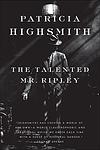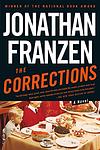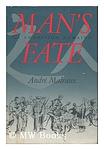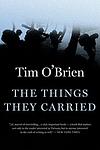The Greatest "Psychological, Fiction" Books Since 1900
Click to learn how this list is calculated.
This list represents a comprehensive and trusted collection of the greatest books. Developed through a specialized algorithm, it brings together 300 'best of' book lists to form a definitive guide to the world's most acclaimed books. For those interested in how these books are chosen, additional details can be found on the rankings page.
Genres
The Psychological genre of books typically explores the inner workings of the human mind and emotions, often delving into complex and sometimes disturbing psychological states. These books may focus on mental illness, trauma, relationships, or personal growth, and often challenge readers to confront their own beliefs and perceptions. Psychological books may be suspenseful, thought-provoking, and emotionally intense, offering readers a deep and often unsettling glimpse into the human psyche.
Countries
Date Range
Reading Statistics
Click the button below to see how many of these books you've read!
Download
If you're interested in downloading this list as a CSV file for use in a spreadsheet application, you can easily do so by clicking the button below. Please note that to ensure a manageable file size and faster download, the CSV will include details for only the first 500 books.
Download-
26. The Castle by Franz Kafka
This novel presents the story of a man who arrives in a village and struggles to gain access to the mysterious authorities who govern it from a castle. The protagonist, a surveyor, faces the constant frustration of his efforts to make contact with the elusive authorities and integrate into village society. The book explores themes of alienation, bureaucracy, the seemingly endless frustrations of man's attempts to stand against the system, and the futile pursuit of an unobtainable goal.
-
27. The Plague by Albert Camus
The novel is set in the Algerian city of Oran during the 1940s, where a deadly plague sweeps through, causing the city to be quarantined. The story is told through the eyes of a doctor who witnesses the horror and suffering caused by the disease. The narrative explores themes of human resilience, solidarity, and the struggle against the absurdities of life. It also examines how individuals and society respond to death and disease, creating a profound meditation on the nature of existence and human endurance.
-
28. Steppenwolf by Hermann Hesse
The novel presents a poignant exploration of a man's struggle with his dual nature. The protagonist, a middle-aged man, finds himself torn between his humanistic, intellectual tendencies and his more primitive, wolf-like instincts. As he navigates his way through the surreal and sometimes hallucinatory world, he encounters various characters who challenge his views and push him towards self-discovery and transformation. The narrative delves into themes of alienation, the subconscious mind, and the search for meaning in life.
-
29. Portnoy's Complaint by Philip Roth
The novel is a first-person narrative, a monologue by a young Jewish man, Alexander Portnoy, who is speaking to his psychoanalyst. He shares his struggles with his identity as a Jewish man in America, his sexual fantasies and frustrations, his complex relationship with his overbearing mother, and his experiences of guilt and shame. The book uses humor and frank language to explore themes of identity, sexuality, and the Jewish experience in America.
-
30. The House of Mirth by Edith Wharton
Set in the backdrop of New York's high society during the turn of the 20th century, the novel follows the life of Lily Bart, a beautiful but impoverished woman of social standing. As she navigates the pressures and expectations of her social circle, Lily grapples with the need to secure a wealthy husband to maintain her lifestyle. However, her romantic inclinations and her desire for personal freedom come into conflict with societal norms, leading to her tragic downfall.
-
31. The Talented Mr. Ripley by Patricia Highsmith
The Talented Mr. Ripley is a psychological thriller that follows the story of Tom Ripley, a young man struggling to make ends meet in New York City. When a wealthy shipbuilder mistakes Tom for a close friend of his son, Dickie Greenleaf, he offers him an all-expenses-paid trip to Italy to persuade his wayward son to return home. Instead, Tom becomes obsessed with the luxurious lifestyle of Dickie and his girlfriend, Marge, and goes to extreme lengths to make it his own, including identity theft and murder.
-
32. Tender Is the Night by F. Scott Fitzgerald
Set in the French Riviera in the 1920s, the novel traces the tragic tale of a young psychiatrist, his beautiful wife, and the drama that unfolds amongst their circle of wealthy expatriate friends. The psychiatrist's wife suffers from mental illness, which leads to his own downfall as he struggles to keep his marriage intact and maintain his professional reputation. The narrative explores themes of wealth, love, desire, and the destructive power of obsession, painting a haunting portrait of the dark side of the glamorous Jazz Age.
-
33. An American Tragedy by Theodore Dreiser
This classic novel explores the dark side of the American Dream through the story of a young man who, despite his humble beginnings, aspires to climb the social ladder. He becomes involved with two women, one wealthy and one from a working-class background. His ambition and desire for status lead him to commit a crime that ultimately results in his downfall. The novel is a stark examination of the destructive power of unchecked ambition and the moral compromises people are willing to make in pursuit of wealth and status.
-
34. Light in August by William Faulkner
Set in the American South during the 1930s, this novel explores complex social and personal issues through the intertwining stories of its characters. The narrative primarily follows a man of ambiguous racial identity on a quest to find his father, a pregnant woman searching for the father of her unborn child, and a disgraced minister attempting to navigate his own moral compass. The book delves into themes of identity, race, and the human struggle for understanding and redemption, all set against the backdrop of the deep-rooted prejudices and social norms of the time.
-
35. The Secret History by Donna Tartt
A group of six classics students at a small, elite Vermont college, led by a charismatic professor, become entranced by the study of Greek culture and decide to recreate a Dionysian ritual, which ends in a tragic accident. The group, bound by their shared secret, begins to unravel as paranoia and guilt take hold. The novel explores themes of beauty and terror, the allure of the esoteric, and the destructive consequences of obsession.
-
36. The Prime of Miss Jean Brodie by Muriel Spark
The novel is set in 1930s Edinburgh and follows the story of six girls under the tutelage of an unconventional teacher, Miss Jean Brodie. Miss Brodie, in her prime, takes it upon herself to educate the girls about life, love, politics, and art, often disregarding the traditional curriculum. The narrative explores the influence of Miss Brodie on the girls, the consequences of her nonconformist teachings, and the ultimate betrayal that leads to her downfall.
-
37. The Remains of the Day by Kazuo Ishiguro
The novel is a poignant tale of an English butler, Stevens, who reflects on his life and career during a road trip through the English countryside. As he delves into his past, he reveals his unquestioning loyalty to his former employer, Lord Darlington, and his unexpressed love for the housekeeper, Miss Kenton. The narrative explores themes of dignity, duty, and regret, as Stevens comes to terms with his unquestioning devotion to his employer and the missed opportunities in his personal life.
-
38. Nostromo by Joseph Conrad
Set in the fictional South American country of Costaguana, the novel explores the turbulent political and social changes of the era through the eyes of Nostromo, a respected and resourceful Italian expatriate. Nostromo's loyalty and heroism are tested when he is tasked with hiding a cache of silver from a revolutionary government. As the political landscape shifts, he finds himself caught in a web of moral dilemmas and life-altering decisions. The novel is a profound examination of power, corruption, and the human condition.
-
39. Herzog by Saul Bellow
The novel centers around Moses Herzog, a middle-aged, intelligent yet distressed man who is going through a mid-life crisis. After his second marriage fails, he falls into a state of emotional turmoil and begins writing letters to friends, family, and even famous figures, expressing his philosophical thoughts and personal feelings. His journey of self-discovery and understanding forms the crux of the story. It's a profound exploration of a man's struggle with the complexities of life and his quest for meaning.
-
40. The Ambassadors by Henry James
The novel centers around a middle-aged man named Lambert Strether who is sent from New England to Paris by a wealthy widow, Mrs. Newsome, to convince her wayward son, Chad, to return home. However, upon arriving in Europe, Strether is charmed by the sophisticated lifestyle Chad has adopted and finds himself questioning the puritanical values of his homeland. He also becomes entangled in romantic relationships and complex social dynamics, leading him to ultimately question his loyalty to Mrs. Newsome. The book explores themes of morality, identity, and the concept of the American versus European lifestyle.
-
41. Atonement by Ian McEwan
Atonement is a powerful novel that explores the consequences of a young girl's false accusation. The narrative follows the lives of three characters, the accuser, her older sister, and the sister's lover, who is wrongly accused. This false accusation irrevocably alters their lives, leading to the accused's imprisonment and eventual enlistment in World War II, while the sisters grapple with guilt, estrangement, and their own personal growth. The novel is a profound exploration of guilt, forgiveness, and the destructive power of misinterpretation.
-
42. The God of Small Things by Arundhati Roy
This novel is a poignant tale of fraternal twins, a boy and a girl, who navigate through their childhood in Kerala, India, amidst a backdrop of political unrest and societal norms. The story, set in 1969, explores the complexities of their family's history and the tragic events that shape their lives. Their mother's transgression of caste and societal norms by having an affair with an untouchable leads to disastrous consequences, revealing the oppressive nature of the caste system and the destructive power of forbidden love. The novel also delves into themes of postcolonial identity, gender roles, and the lingering effects of trauma.
-
43. Women in Love by D. H. Lawrence
"Women in Love" is a novel that explores the complex relationships of two sisters, Ursula and Gudrun Brangwen, as they navigate their passions, desires, and connections with two men, Rupert Birkin and Gerald Crich, in post-World War I England. The novel delves deep into the psychological aspects of love, questioning traditional romantic love and proposing a more modern, individualistic approach to relationships. It also explores themes of industrialization, modernity, and the nature of human existence.
-
44. The Corrections by Jonathan Franzen
The novel revolves around the lives of the Lambert family, an old-fashioned midwestern couple and their three adult children. The parents, Alfred and Enid, are dealing with Alfred's Parkinson's disease and their own marital problems, while their children are each facing their own personal and professional crises. The narrative explores the themes of family dynamics, societal expectations, and the struggles of modern life. The story climaxes with the family's last Christmas together at their childhood home.
-
45. Molloy by Samuel Beckett
"Molloy" is a complex and enigmatic novel that follows the journey of its eponymous character, an elderly, disabled vagabond, who is tasked with finding and killing a certain person. The narrative is split into two parts: the first is told from Molloy's perspective as he navigates his way through a strange and often hostile world, while the second follows a detective named Moran who is assigned to find Molloy. The novel is renowned for its challenging narrative structure, its bleak and absurdist humor, and its profound exploration of themes such as identity, existence, and the human condition.
-
46. Disgrace by J M Coetzee
"Disgrace" is a novel that explores the life of a middle-aged professor in South Africa who is dismissed from his position after having an affair with a student. After losing his job, he moves to the countryside to live with his daughter, where they experience a violent attack that significantly alters their lives. The story delves into themes of post-apartheid South Africa, racial tension, sexual exploitation, and the struggle for personal redemption.
-
47. American Pastoral by Philip Roth
This novel tells the story of Seymour "Swede" Levov, a successful Jewish-American businessman and former high school athlete from Newark, New Jersey. Levov's happy and conventional upper middle class life is ruined by the domestic social and political turmoil of the 1960s during the presidency of Lyndon B. Johnson, which in the novel is seen through the eyes of the narrator, Nathan Zuckerman, a budding writer who idolizes the Levovs. The novel portrays the impact of this turmoil on Levov and his family, particularly his rebellious daughter who becomes involved in revolutionary political activities.
-
48. Man's Fate by Andre Malraux
Set in 1920s Shanghai during a time of political upheaval, the novel explores the existential themes of life, death, and the human condition through the experiences of a group of revolutionaries. The narrative follows their struggles and sacrifices for their cause, the Communist revolution, and their inevitable confrontation with their own mortality and the harsh realities of life. The book delves into the complexities of political ideologies, human relationships and the constant struggle between hope and despair.
-
49. Confessions of Zeno by Italo Svevo
"Confessions of Zeno" is a satirical, semi-autobiographical novel that follows the life of Zeno Cosini, a neurotic Italian businessman, as he tries to quit smoking. The book is presented as a diary, written at the suggestion of Zeno's psychoanalyst, and it details Zeno's thoughts on his health, his family, his business ventures, and his infatuation with a beautiful woman. Throughout the story, Zeno's attempts to quit smoking serve as a metaphor for his struggles with his personal weaknesses and his quest for self-understanding.
-
50. The Things They Carried by Tim O'Brien
The book is a collection of linked short stories about a platoon of American soldiers fighting in the Vietnam War. The story is semi-autobiographical, based on the author's experiences in the war. The narrative explores the physical and emotional burdens the soldiers carry during the war, as well as the lingering effects of war on veterans. It delves into themes of bravery, truth, and the fluidity of fact and fiction.
Reading Statistics
Click the button below to see how many of these books you've read!
Download
If you're interested in downloading this list as a CSV file for use in a spreadsheet application, you can easily do so by clicking the button below. Please note that to ensure a manageable file size and faster download, the CSV will include details for only the first 500 books.
Download























